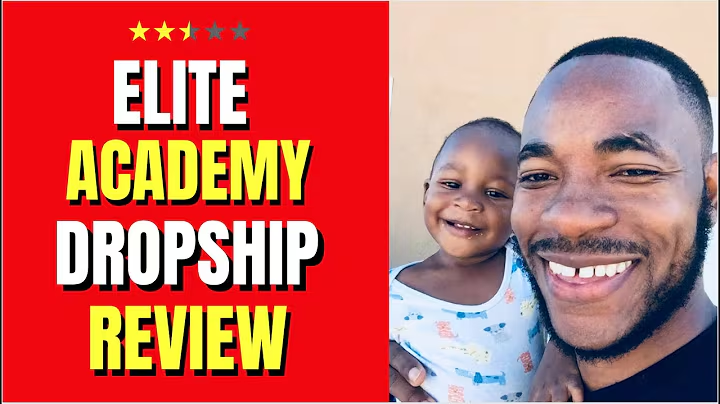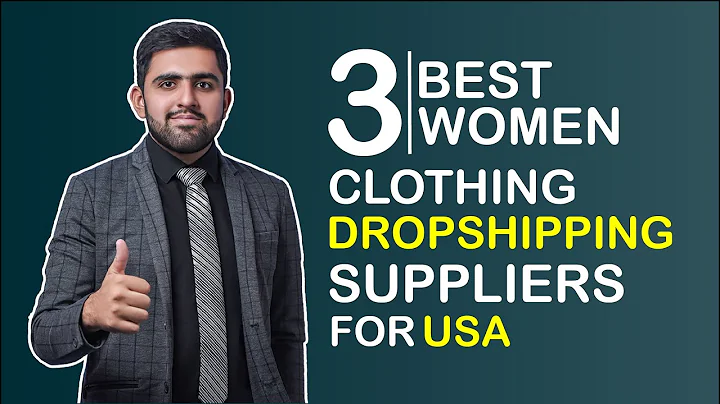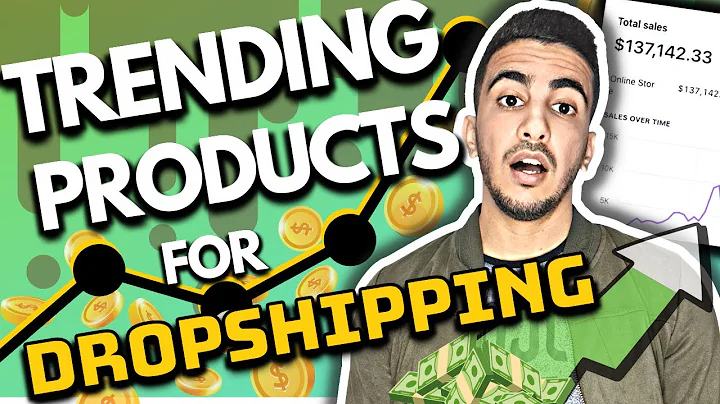Maximize Your Dropshipping Success: Organic vs Paid Marketing
Table of Contents:
- Introduction
- The Importance of Marketing in dropshipping
- Choosing the Right Product and Setting Up Your Store
- Organic Marketing: Leveraging Social Media Platforms
- Creating Engaging Content for Instagram, TikTok, and YouTube
- Going Viral and Building a Following
- Paid Marketing: Advertising on Facebook, Instagram, and TikTok
- The Benefits of Paid Marketing
- Setting up TikTok Ads: Step-by-Step Guide
- Evaluating Ad Performance and Product Success
- Conclusion
Organic vs Paid Marketing: How to Successfully Promote Your Dropshipping Business
In today's digital age, starting a dropshipping business has become increasingly popular due to its low startup costs and flexible nature. However, just having a great product and an optimized store is not enough to guarantee success. The key to a thriving dropshipping business lies in effective marketing. In this article, we will explore the two main marketing options available to dropshippers - Organic Marketing and Paid Marketing - and discuss how to leverage each for maximum success. So, let's dive in!
Introduction
Before delving into the world of marketing, it is crucial to understand that the way you approach and execute your marketing strategy will greatly impact the overall success of your dropshipping business. While marketing is often seen as a means to drive sales and increase revenue, it is much more than that. It is an opportunity to connect with your target audience, build brand awareness, and establish your business as a trusted authority in the niche. Therefore, it is essential to lay a solid foundation before embarking on your marketing journey.
The Importance of Marketing in Dropshipping
Marketing is the lifeblood of any business, including dropshipping. It is the driving force that brings customers to your store, compels them to make purchases, and ultimately fuels your business growth. Without effective marketing strategies in place, even the most exceptional products and optimized stores will go unnoticed.
Choosing the Right Product and Setting Up Your Store
Before diving into marketing, it is crucial to have a well-structured store and a winning product. Your marketing efforts will only yield results if you have a product that resonates with your target audience and a store that is designed for conversions. Take the time to research and select a product that is in demand and has the potential to drive sales. Additionally, ensure that your store offers a smooth user experience, easy navigation, and clear call-to-actions to enhance the chances of conversions.
Once your product and store are ready, you are now prepared to embark on your marketing journey.
Organic Marketing: Leveraging Social Media Platforms
Organic Marketing is a marketing approach that utilizes various social media platforms to attract potential customers without spending money on advertising. It involves creating valuable and engaging content that resonates with your target audience and posting it across social media channels such as Instagram, TikTok, and YouTube.
With the recent algorithm changes on these platforms, the chances of going viral and reaching a wider audience have significantly increased. Many dropshippers are taking advantage of this shift in algorithms to build their brand and drive traffic to their stores. By consistently creating compelling content and posting it for free, you can organically grow your following and attract potential customers to your store.
One successful example of a dropshipping store utilizing the power of organic marketing is cybreplex. This tech device store started its Instagram page from scratch and gained over 35 thousand views on their first video. Over time, their consistency and engaging content resulted in a video that garnered 2.9 million views, bringing substantial traffic and potential sales to their store.
Pros of Organic Marketing
- Cost-effective: Organic marketing allows you to promote your business without spending money on advertising.
- Building a loyal following: By consistently providing valuable content, you can grow a loyal following who are more likely to engage with and purchase from your store.
- Going viral: The increased chances of going viral on social media platforms allow you to reach a broader audience and potentially bring in more sales.
Cons of Organic Marketing
- Time-consuming: Creating consistent and engaging content requires time and effort.
- Uncertain results: While organic marketing can yield substantial results, it is not guaranteed. Going viral is not always predictable, and it can take time to build a loyal following.
Paid Marketing: Advertising on Facebook, Instagram, and TikTok
Paid Marketing, on the other hand, involves paying social media platforms to show your ads to potential customers. It provides a more targeted and controlled approach to marketing by allowing you to select specific demographics, interests, and behaviors to reach your ideal customers.
For dropshippers, the best platforms to pursue paid marketing are Facebook, Instagram, and TikTok. These platforms have proven to be effective in driving traffic and generating sales. While the initial investment may be higher compared to organic marketing, paid marketing offers greater control over your advertising campaigns and can yield faster results.
Pros of Paid Marketing
- Targeted audience reach: Through paid advertising, you can reach a more specific and targeted audience, increasing the chances of converting leads into customers.
- Fast results: Paid marketing strategies often yield faster results than organic marketing, allowing you to scale your business quickly.
- Comprehensive analytics: Paid marketing platforms provide detailed analytics and insights, allowing you to track the performance of your ads and optimize accordingly.
Cons of Paid Marketing
- Initial investment: Implementing paid marketing strategies requires an initial investment for ad spend, which may not be feasible for all dropshippers.
- Ad fatigue: Over time, your target audience may become accustomed to seeing your ads, resulting in ad fatigue and decreased engagement rates.
- Potential higher competition: Paid marketing is widely adopted by businesses, which means there may be significant competition within your niche.
Conclusion
Marketing is a crucial aspect of running a successful dropshipping business. Whether you choose to leverage organic marketing or paid marketing, or a combination of both, the key is to understand your target audience, create compelling content, and continually optimize your strategies based on the data and results. The marketing landscape is ever-evolving, so it is essential to stay abreast of the latest trends, algorithms, and consumer behaviors to ensure the ongoing success of your dropshipping business.
Remember, marketing is not just about making sales; it is about connecting with your target audience, building trust, and establishing your brand as a reliable authority in your niche. So, take the time to plan, execute, and continuously refine your marketing strategies, and watch your dropshipping business thrive.
FAQs
Q: Can I use both organic and paid marketing strategies simultaneously?
A: Yes, you can integrate both organic and paid marketing strategies in your overall marketing plan. Depending on your budget and goals, you can allocate resources to each strategy and measure their effectiveness in driving traffic and sales.
Q: How long does it take to see results from organic marketing efforts?
A: Organic marketing is a long-term strategy that requires consistency and patience. It may take time to build a loyal following and see significant results. However, by consistently providing valuable content and engaging with your audience, you increase your chances of going viral and driving traffic to your store.
Q: How much should I budget for paid marketing?
A: The budget allocated for paid marketing will vary depending on various factors such as your product niche, target audience, and goals. It is advisable to start with a modest budget and gradually increase it as you analyze the performance of your ads and identify profitable campaigns.
Q: Which social media platforms are best for dropshipping?
A: Facebook, Instagram, and TikTok are currently popular platforms for dropshipping. They offer powerful ad targeting options and have a wide user base that can potentially be converted into customers. However, it is essential to research your target audience and their preferred social media platforms to maximize the effectiveness of your marketing efforts.















